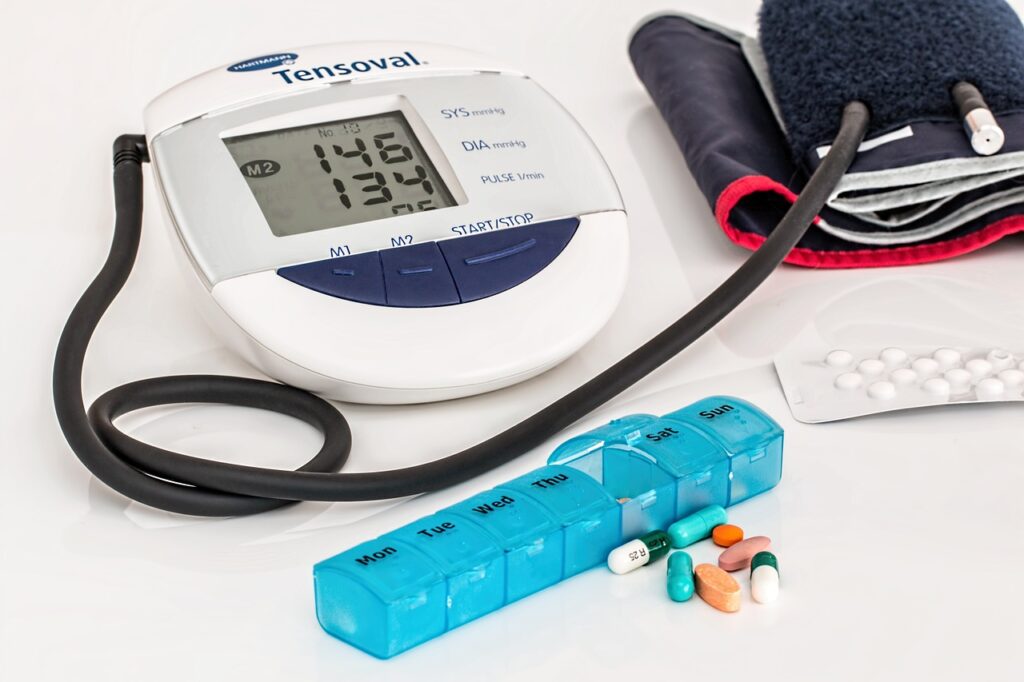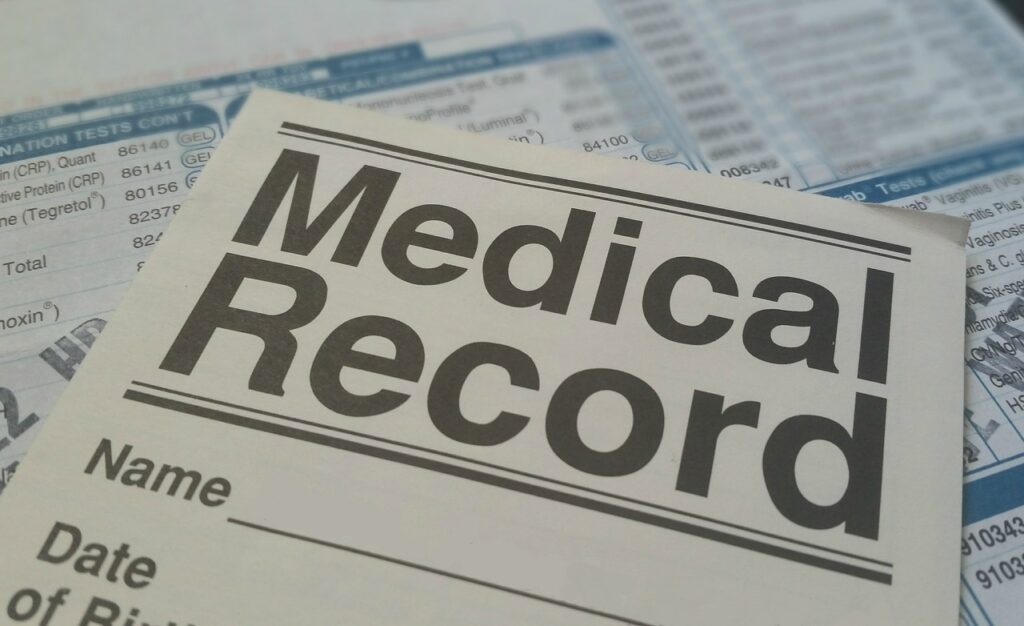Medical certificate programs offer adult learners a focused and cost-effective pathway to advance in the healthcare industry. By enrolling in such programs, individuals can gain specialized knowledge and skills, allowing them to pursue new career opportunities or enhance their current roles. This blog explores various medical certificate programs tailored to the unique needs of adult learners, showcasing their benefits and outlining factors to consider when
Certificate programs serve as a means of bridging the gap between formal education and real-world application. They are designed to help adult learners gain the practical skills and knowledge required for specific healthcare roles in a relatively short amount of time. These programs often emphasize hands-on learning and practical application, enabling students to quickly transition into the workforce upon completion.
Schools Offering Medical Certificate Programs

Medical Certificate Programs from Penn Foster
Dental Assistant, Electronic Medical Records Specialist, Healthcare Management, Home Health Aide, Medical Administrative Assistant, Medical Assistant, Medical Billing and Coding, Medical Terminology, Medical Transcriptionist, Pharmacy Technician, Physical Therapy Aide, Sterile Processing

Medical Certificate Programs from University of Phoenix
Medical Records Certificate (Undergraduate)

Medical Certificate Programs US Career Institute
Dental Assistant, EKG Technician, Electronic Medical Records Specialist, Healthcare Office Manager, Medical Administrative Assistant, Medical Assistant, Medical Billing Specialist, Medical Coding Specialist, Medical Coding & Billing Specialist, Medical Transcriptionist, Patient Care Technician, Pharmacy Technician, Phlebotomy Technician, Physical Therapy Aide
Benefits for adult learners
Medical certificate programs offer numerous benefits for adult learners, including:
- Flexibility in learning: These programs are typically designed with the busy schedules of adult learners in mind, providing options for online, part-time, or accelerated formats to accommodate individual needs.
- Career advancement opportunities: Medical certificate programs can help adult learners advance in their current roles or transition into new healthcare positions by acquiring specialized skills and qualifications.
- Shorter duration compared to traditional degree programs: Medical certificate programs generally take less time to complete than traditional degree programs, allowing adult learners to quickly gain the necessary skills for their chosen career paths.
Types of medical certificate programs available
There are a wide variety of medical certificate programs available to cater to the diverse needs of adult learners. These programs can be broadly categorized into the following types:
- Clinical certificates: These programs focus on training healthcare professionals in direct patient care roles, such as medical assistants, phlebotomists, and licensed practical nurses.
- Administrative certificates: Administrative programs are geared towards those interested in healthcare management, medical billing and coding, or health information technology.
- Specialized certificates: Specialized programs offer targeted training in specific areas of healthcare, such as radiologic technology, dental assisting, or medical laboratory science.
Overall, medical certificate programs provide adult learners with the opportunity to gain specialized skills and qualifications to advance their careers in the dynamic healthcare industry.
Popular Medical Certificate Programs
There are numerous medical certificate programs available to cater to the diverse needs of adult learners. Some popular programs cover various healthcare fields, offering specialized training and excellent career prospects. In this section, we’ll discuss popular programs, their course content, potential career outcomes, and how to apply.
Examples of popular programs in various healthcare fields:
- Medical Assistant Certificate
- Phlebotomy Technician Certificate
- Medical Billing and Coding Certificate
- Pharmacy Technician Certificate
- Dental Assistant Certificate
- Radiologic Technologist Certificate
- Medical Laboratory Technician Certificate
Brief description of each program, including course content and potential career outcomes:
Medical Coding and Billing
Medical Coding and Billing is a crucial aspect of healthcare administration that focuses on the accurate documentation and processing of patient information, including diagnoses, treatments, and medical procedures.
A certificate program in medical coding and billing equips students with the knowledge of medical terminology, coding systems, and healthcare reimbursement processes. Upon completion, graduates can pursue careers as medical coders, billing specialists, and health information technicians in various healthcare settings, such as hospitals, clinics, and insurance companies.
Phlebotomy Tech
Phlebotomy Technician programs train students in the essential skills and techniques required for safe and effective blood collection. This includes knowledge of human anatomy, proper venipuncture techniques, and infection control procedures. Graduates of phlebotomy technician programs can find employment as Phlebotomy Technicians in hospitals, clinics, and diagnostic laboratories, where they play a vital role in patient care and diagnostic testing.
Pharmacy Tech
A Pharmacy Technician certificate program prepares students for a career assisting pharmacists in the dispensing of medications, management of drug inventory, and maintenance of patient records. Students learn about pharmaceutical calculations, medication dosage forms, and drug classifications, among other topics. Upon completion, they can pursue careers in retail pharmacies, hospitals, and other healthcare facilities that require the services of pharmacy technicians.
Medical Assisting
Medical Assistant programs offer comprehensive training in both administrative and clinical aspects of healthcare. Students learn essential skills such as patient scheduling, medical recordkeeping, and taking vital signs, preparing them for versatile roles in various healthcare settings. Medical assistants can work in hospitals, clinics, and private practices, where they provide critical support to physicians and other healthcare professionals.
Patient Care Technician
Lastly, Patient Care Technician programs focus on equipping students with the skills needed to provide direct patient care in various healthcare settings. These programs cover topics such as patient assessment, basic nursing skills, and emergency procedures. Graduates can work in hospitals, long-term care facilities, and home healthcare agencies, where they assist nurses and other healthcare professionals in delivering quality care to patients.

Factors to Consider When Choosing a Medical Certificate Program
Selecting the right medical certificate program can have a significant impact on your career trajectory and overall success. To make an informed decision, it’s essential to consider several factors, including accreditation and reputation, program length and format, course content and curriculum, tuition fees and financial assistance options, and career outcomes and job placement support.
Accreditation and reputation
It’s crucial to choose a program that is accredited by a recognized accrediting body to ensure the quality of education and increase your employability. Additionally, consider the reputation of the institution offering the program, as employers often take this into account when evaluating candidates. Research the success rates of the program’s graduates to get a better understanding of its effectiveness.
Program length and format
Medical certificate programs vary in length and format, so it’s essential to choose one that aligns with your needs and schedule. Some programs may be offered in a traditional classroom setting, while others may be available online or in a hybrid format. Look for a program that offers flexibility, such as part-time or accelerated options, to accommodate your lifestyle and commitments.
Course content and curriculum
Examine the course content and curriculum of each program to ensure it covers the necessary skills and knowledge for your desired career path. Look for a program that emphasizes hands-on learning and practical application to gain real-world experience. Additionally, consider the qualifications and experience of the program’s instructors, as this can impact the quality of education you receive.
Tuition fees and financial assistance options
Cost is a significant factor when choosing a medical certificate program. Compare tuition fees among different programs and institutions, and consider the potential return on investment in terms of career advancement and salary increase. Additionally, explore financial aid for adult learners such as scholarships, grants, and loans to help fund your education.
Career outcomes and job placement support
Finally, research the career outcomes of graduates from each program to determine its effectiveness in preparing students for successful careers in the healthcare industry. Look for programs that offer job placement support, such as internships, job placement services, and networking opportunities to help you secure a position upon completion.
Selecting the right medical certificate program is a critical decision that requires thorough research and consideration. By evaluating factors such as accreditation, program length, course content, tuition fees, and career outcomes, you can choose a program that aligns with your career goals and sets you up for success in the healthcare field.

Choosing the Right Medical Certificate Program
Selecting the appropriate medical certificate program is crucial to achieving your career goals and maximizing your potential in the healthcare industry. Several factors need to be considered when making this important decision, ensuring the chosen program aligns with your interests, needs, and aspirations.
Assess Your Healthcare Career Goals
Begin by assessing your career goals and interests to determine the type of program that best suits your objectives. Consider your strengths, areas of expertise, and the specific healthcare roles or settings that appeal to you. This self-reflection will help you identify the most relevant medical certificate programs for your career path.
Understand Medical Certificate Program Requirements
Thoroughly research the curriculum and requirements of each potential program, paying close attention to the topics covered, the practical training components, and the overall program structure. This information will provide valuable insights into the content and learning outcomes, helping you gauge the relevance and applicability of each program to your career goals.
Compare Program Costs
Comparing program costs and financial aid options is another crucial aspect of the decision-making process. Medical certificate programs can vary significantly in terms of tuition fees, material costs, and available financial assistance. Be sure to explore all the financial resources at your disposal, including scholarships, grants, and loans, to find the most affordable and cost-effective option for your circumstances.
Evaluate Program and School Reputation and Accreditation
Evaluating the reputation and accreditation of the program is essential to ensuring the quality of your education. Seek out programs that hold relevant accreditations or endorsements from recognized industry organizations, as this can be an indicator of the program’s credibility and the value of the certification in the job market.
Research Employment Opportunities
Finally, consider the potential job market and employment opportunities for graduates of the program. Research the demand for professionals with the specific certification in your region or target job market, as well as the potential salary and growth prospects. This information will help you make an informed decision and choose a program that offers the best chances of achieving your career aspirations.
Tips for Success in Medical Certificate Programs
Thriving in a medical certificate program as an adult learner requires a combination of effective time management, a balanced approach to personal and professional commitments, and a dedication to continuous learning. The following tips can help you succeed in your chosen program and maximize your potential in the healthcare industry.
Effective Time Management and Organization
Time management strategies for adult learners are essential to ensure you can effectively balance your program’s demands with your other responsibilities. Develop a study schedule that accommodates your work and family commitments, and be disciplined in adhering to it. Break down larger tasks into smaller, manageable goals, and allocate time for regular study sessions to maintain consistency and momentum in your learning.
Balancing Work, Family, and Education
When it comes to balancing work, family, and education commitments, clear communication with your employer, family members, and instructors is key. Share your educational goals and expectations with these stakeholders, and enlist their support in accommodating your study schedule and responsibilities. This collaborative approach can help create a conducive environment for your learning and minimize potential conflicts.
Networking and Professional Development Opportunities
Medical certificate programs often provide various resources and support services to assist students in their learning journey. Be proactive in utilizing these resources, such as academic counseling, tutoring services, and online discussion forums, to enhance your understanding of the course material and overcome any challenges you may encounter.
Active networking with peers, instructors, and professionals in the field can provide valuable insights, support, and opportunities for collaboration. Engage in class discussions, attend networking events, and join relevant professional associations to expand your connections and stay informed about industry trends and best practices.
Staying Up-to-Date with Industry Trends and Advancements
Finally, continuously updating your skills and knowledge in the medical field is vital for long-term success. Stay informed about new developments, technologies, and research in your area of expertise, and seek out opportunities for professional development, such as workshops, conferences, and online courses, to maintain your competitive edge in the job market.

Unlock Your Potential in the Medical Field
Pursuing a medical certificate program can offer numerous potential benefits for adult learners, including focused training, flexibility, and accelerated career advancement. To maximize these benefits, it is essential to find the right program and support system that aligns with your career goals and personal needs.
As you explore your options, consider the importance of factors such as accreditation, program format, course content, and career outcomes. By making informed decisions, you can set yourself up for success in the dynamic healthcare industry.



